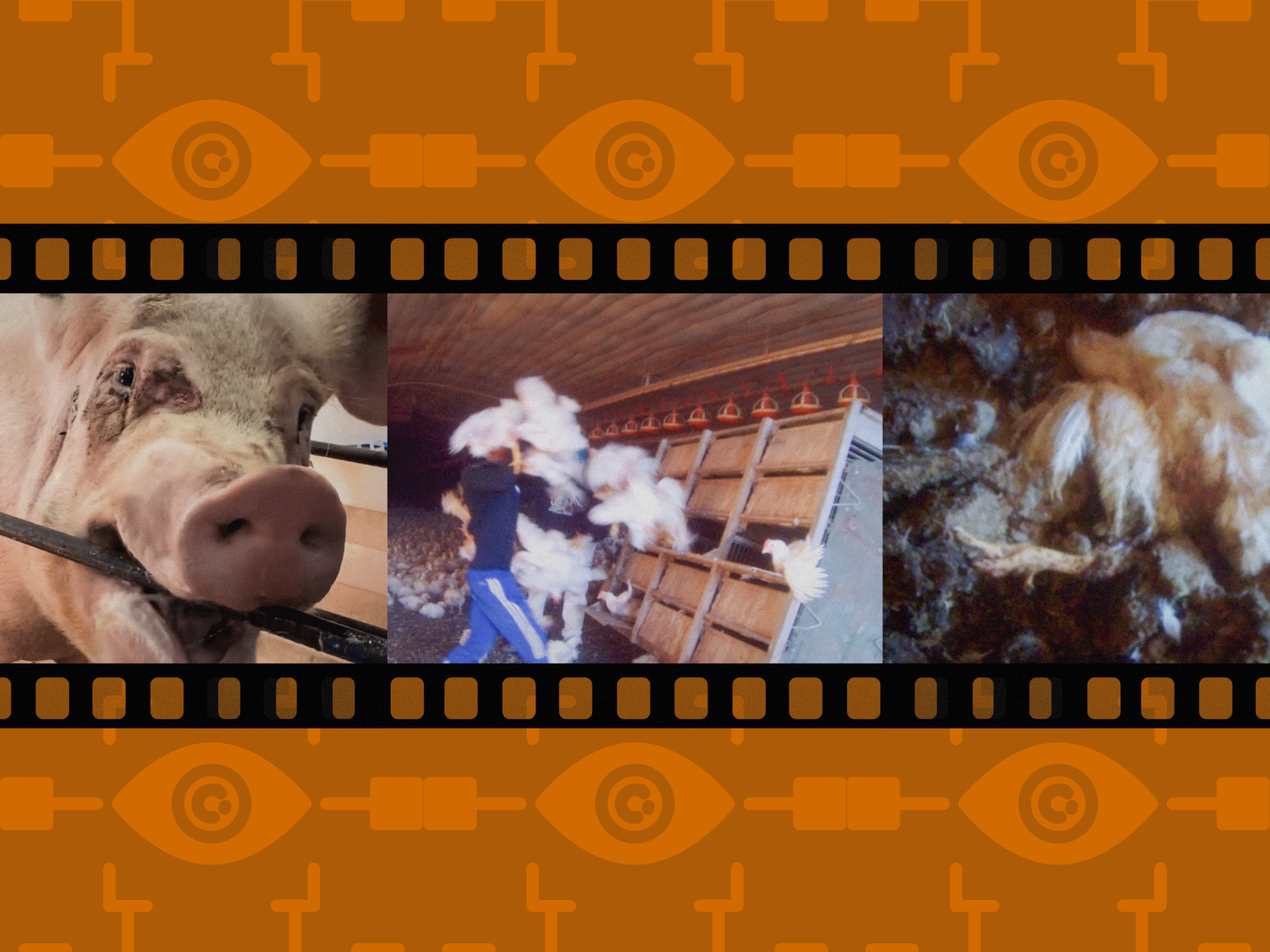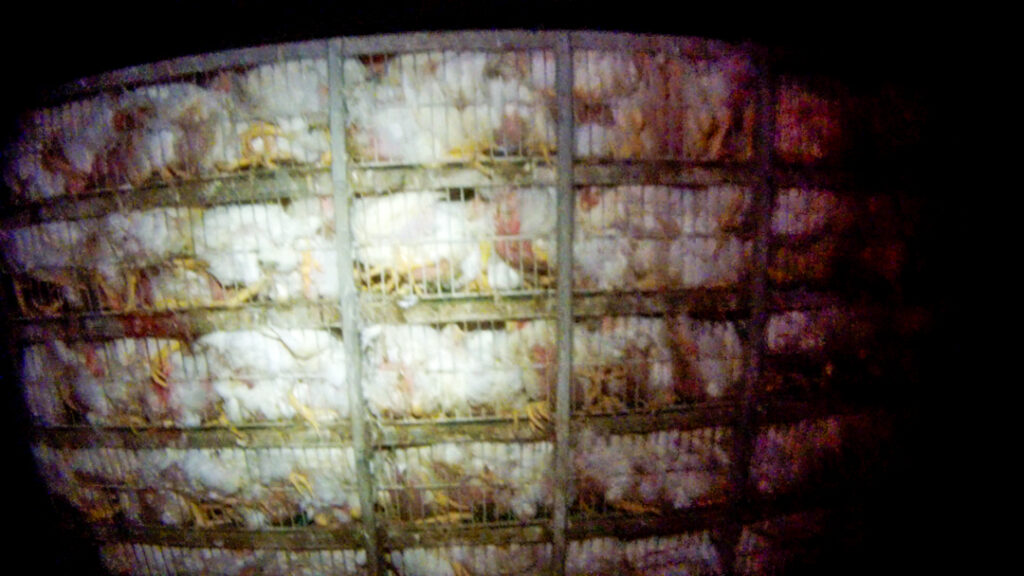
Animal Agriculture Alliance, which is funded by the US livestock industry and has a direct line to the FBI, has a database tracking the lives of 2,400 activists.
Thousands of animal rights activists and prominent charities are the subjects of a mass surveillance campaign run by a meat industry interest group, a new investigation has found.
Animal Agriculture Alliance (AAA), a lobbying organisation for the livestock industry funded partly by public money, has shared information about the personal relationships and biological ties of members in animal welfare groups, according to an investigation by DeSmog.
Leaked documents from the last decade show how the meat and dairy sector works to track and discredit its critics at a time when climate and health experts are calling on consumers and policymakers to shift away from a food system heavy on animal proteins. They further shed light on efforts to crack down on undercover activists who film or report on farm conditions.
The investigation comes ahead of Eat-Lancet Commission’s highly anticipated update to its 2019 Planetary Health Diet report this week. The original report stated that meat, dairy and seafood should only make up 11% of an individual’s diet to fight food security and climate change, and was attacked by the livestock industry, including the AAA.
Next month, leaders from across the world will convene in Brazil for COP30, the latest edition of the UN climate summit, which has been marred with controversy over the last couple of years. Among its criticisms was the record attendance of meat industry lobbyists.
And ahead of this year’s summit, South American meat giants have already spent millions on lobbying campaigns to promote a controversial methane reporting metric and downplay the industry’s climate impact.
How Animal Agriculture Alliance keeps tabs on activists

DeSmog analysed more than 400 pages of documents, including emails, meeting minutes and online resources, to find that the AAA created detailed profiles of undercover activists and a database of over 2,400 individuals.
In one instance, the organisation provided real-time updates on the location of one animal activist through social media updates, as well as shared the name and a photo of his partner, with industry members who were passing intelligence to the local sheriff.
It also mapped “biological or marriage” ties between members of well-known groups like Compassion in World Farming, and Mercy for Animals, and labelled non-profits like Peta and the Humane World for Animals as “high risk”.
Some AAA members themselves went undercover in animal rights groups to report on daily meetings and protest plans against the meat industry.
The organisation has regularly briefed local and federal government departments on “extreme activities”, an umbrella term it uses for acts spanning arson and harassment to banner drops and “observation” of farm conditions.
It has influenced policies several times. In the 1990s, when it was known as the Animal Industry Foundation, it successfully led calls for Congress to make “animal rights violence” a federal crime. Some of its members, including the National Cattlemen’s Beef Association, lobbied to extend the law so activists could be convicted as terrorists, which resulted in the 2006 Animal Enterprise Terrorism Act.
In 2019, meanwhile, the AAA persuaded Minneapolis mayor Jacob Frey to withdraw his support for a Meatless Mondays campaign in schools.
Meat lobby has its arms deep into Trump administration

It’s worth noting that 60% of the AAA’s funding comes from annual fees paid by members (ranging from $1,500 to over $50,000), some of whom include checkoff groups that promote beef, pork and poultry through mandatory levies paid by farmers. Checkoffs are overseen by the USDA and have faced lawsuits alleging that they force producers to pay taxes for activities they otherwise won’t choose to support.
In 2023, it received over $1.4M in funding, and its board includes two of the world’s five largest meat companies, Cargill and Smithfield Foods.
According to separate investigations by Wired and The Intercept, the AAA has a direct line to staff at the Federal Bureau of Investigation (FBI) and the Department of Homeland Security, and has lobbied these departments to consider animal rights activists as a bioterrorism threat.
“Our goal is to protect our communities from unlawful activity while at the same time upholding the Constitution,” the FBI told DeSmog. “The FBI can never open an investigation based solely on First Amendment protected activity.”
But the AAA’s efforts have sparked fear among the animal welfare sector, with activists and whistleblowers concerned about being convicted or labelled a terrorist. So far, 12 states have introduced laws criminalising unauthorised recording or photography at animal farms, commonly known as ag-gag laws. Several of them have been struck down by courts as unconstitutional.
Still, experts are worried that these surveillance tactics could ramp up under Donald Trump’s second presidency, which has been a strong supporter of animal agriculture, whether it’s championing raw milk or beef tallow, or withdrawing plans to curb pollution from slaughterhouses and strengthen safety testing of raw poultry.
This is not surprising, considering that the largest corporate donation to Trump’s inauguration ceremony this year was the $5M check from Pilgrim’s Pride, a subsidiary of the world’s biggest meat producer, JBS.
“No other protest group has been so targeted since 9/11 as a terrorist threat,” Will Potter, a journalist specialising in animal rights reporting, told DeSmog. “I expect these types of tactics, which have been pioneered against animal rights activists, to become the playbook for going after other movements, in the US and globally.”
The post The US Meat & Dairy Industry is Spying on Thousands of Animal Rights Activists appeared first on Green Queen.
This post was originally published on Green Queen.